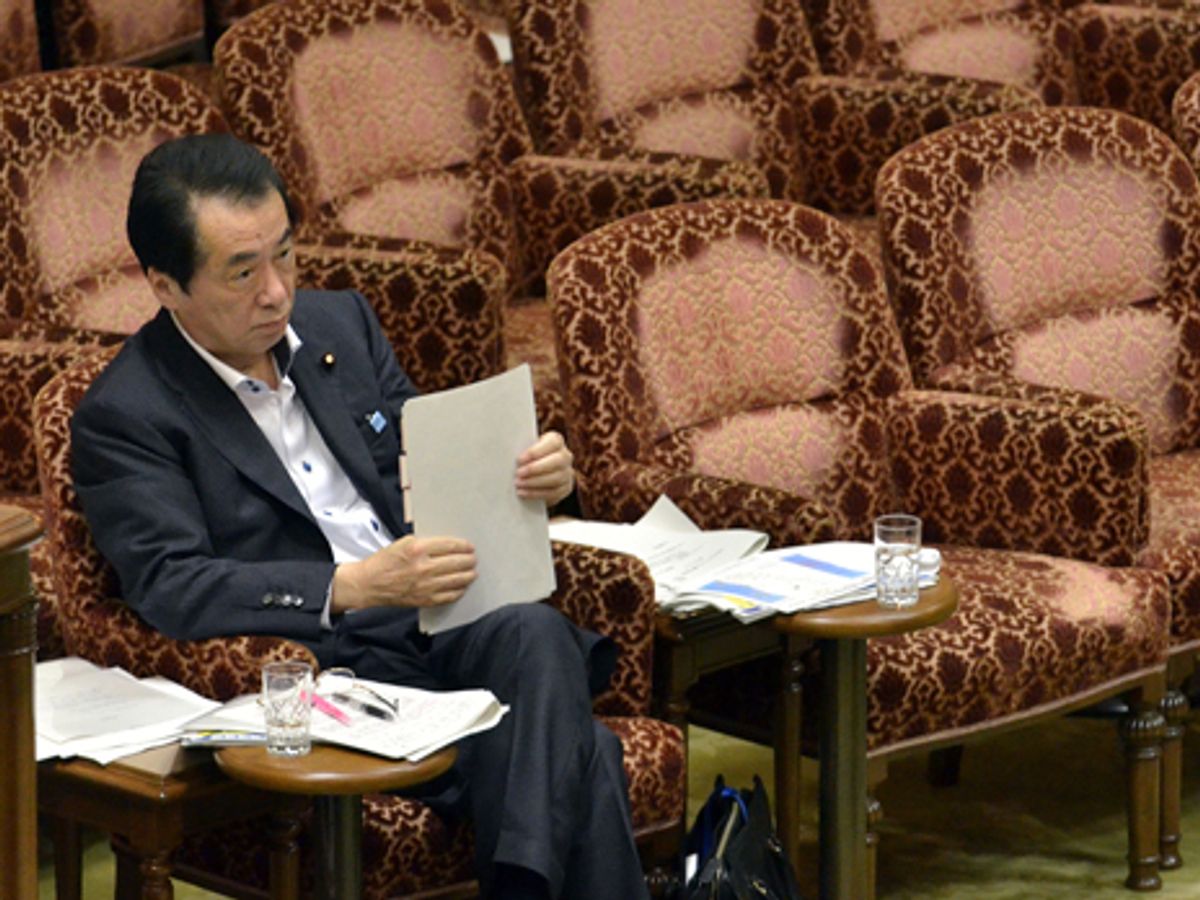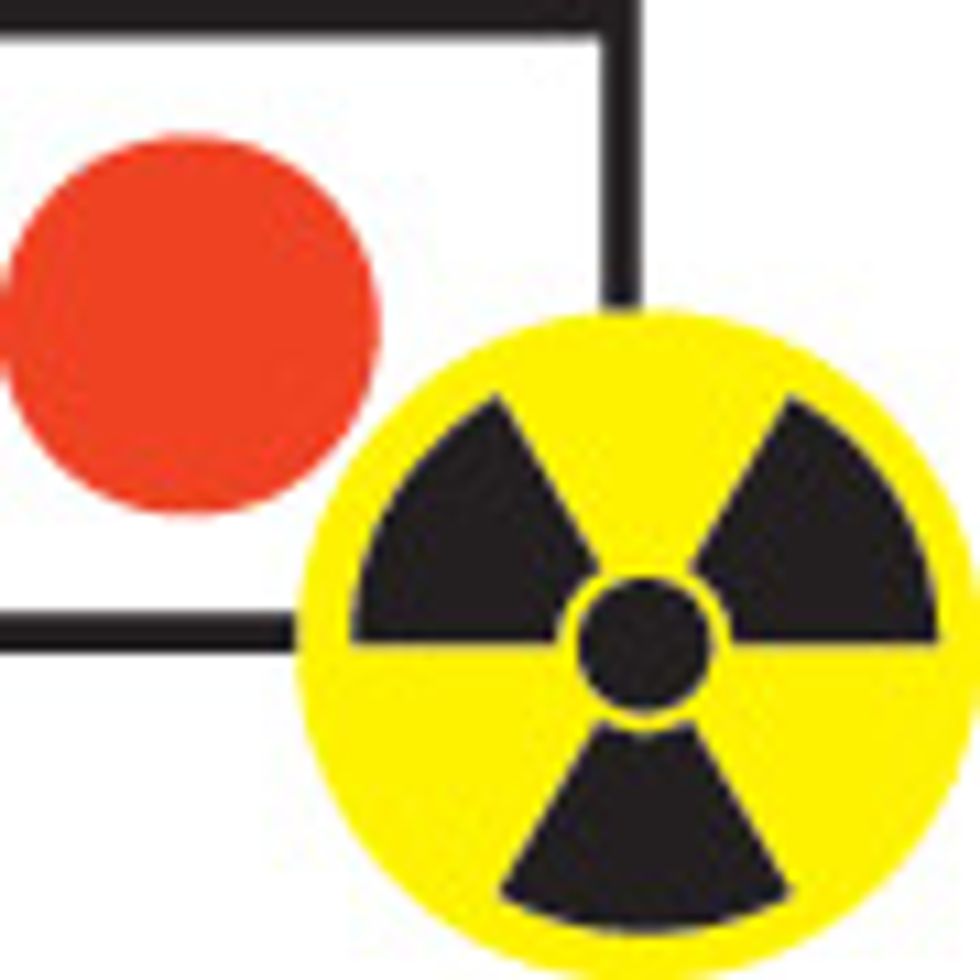Editor's Note: John Boyd is an IEEE Spectrum contributor reporting from Kawasaki, Japan. This is part of IEEE Spectrum's ongoing coverage of Japan's earthquake and nuclear emergency. For more details on how Fukushima Dai-1's nuclear reactors work and what has gone wrong so far, see our explainer and our timeline.
Prime Minister Naoto Kan surprised his cabinet members and industry groups when he stated during a press conference last Wednesday that Japan should reduce its “dependence on nuclear power,” and “aim to realize a society in the future where we can do without nuclear power stations.” He underlined this by saying, “I will make efforts to engage in a fundamental reform of nuclear power administration.”
But by Friday he had modified his stance by explaining that his statement was not a government position, but rather his “private view.” He also admitted he had not consulted with other cabinet members before making the statement, for which he was criticized by Koichiro Gemba, Minister of State for Science and Technology Policy and other ministers.
“Sufficient discussion is needed beforehand for the prime minister to make such a decision,” Gemba told reporters. “It was not the kind of judgment that should be made hastily.”
Despite the softening of his stance, Kan’s position may have harmed Japan’s exports of nuclear power equipment. Japan had been holding talks with Brazil, India, South Africa, Turkey, and the United Arab Emirates up until the 11 March earthquake and tsunami, but negotiations were put on hold following the Fukushima Dai-1 nuclear plant accident. According to Kyodo News, quoting an unnamed government source, the government intends to suspend these negotiations because to reopen the them now, “could risk contradicting the prime minister’s policy.”
The Environment Ministry pointed out another unwanted consequence of such a move to zero nuclear dependence. The ministry estimates that should Japan shut down all 54 of its nuclear reactors and shift to fossil fuels, the country’s annual carbon dioxide emissions would rise by around 200 million metric tons, a 16-percent increase over its 1990 levels. Yet under the Kyoto Protocol, Japan promised to reduce emissions by 6 percent and has since vowed to further reduce greenhouse gas emissions by 25 percent from 1990 levels by 2020—a declaration based on the understanding that it would have 14 new nuclear plants in operation by 2030.
What’s more, Kan’s statement, personal or not, is in line with some of his recent decisions, including his direct request to Chubu Electric Power Co. to suspend operations of its Hamaoka nuclear power plant in Shizuoka Prefecture because of predictions of a major earthquake occurring in the region within the next 30 years. More recently, Kan suddenly announced a two-step stress test for all Japan’s nuclear reactors, again apparently without consulting with his cabinet. Critics of the stress-test say it will likely delay the resumption of 19 idle nuclear reactors, which were taken off line for maintenance inspections and which are now awaiting approval to restart. Such delays have raised fears that Japan will not be able to get through the summer without experiencing power cuts.
Yukio Edano, the Chief Cabinet Secretary, endeavored to allay such power-shortage fears. “As for the supply of power this summer, all the relevant parties are making their own efforts (to meet the challenge),” he told the Japanese media last week. “And METI [Ministry of Economy, Trade and Industry] is making a detailed study of what [additional] measures should be implemented, and it has shown that with all these efforts, we will be able to” produce enough electricity.
News that Kansai Electric Power Co. will have to halt operations of its No. 1 reactor in its Oi nuclear power plant in Fukui Prefecture, located north of Kyoto on the Japan Sea Coast, will certainly sour opinion on nuclear power further. The company says it plans to shut down the 1.75-gigawatt reactor this coming Saturday because, last Friday, the pressure inside a water tank used for emergency cooling of the reactor suddenly dropped. Although the pressure has since returned to normal, a company official said they wanted to investigate the reason for the loss of pressure. The official added that at this time they had no idea when the reactor could be restarted.




